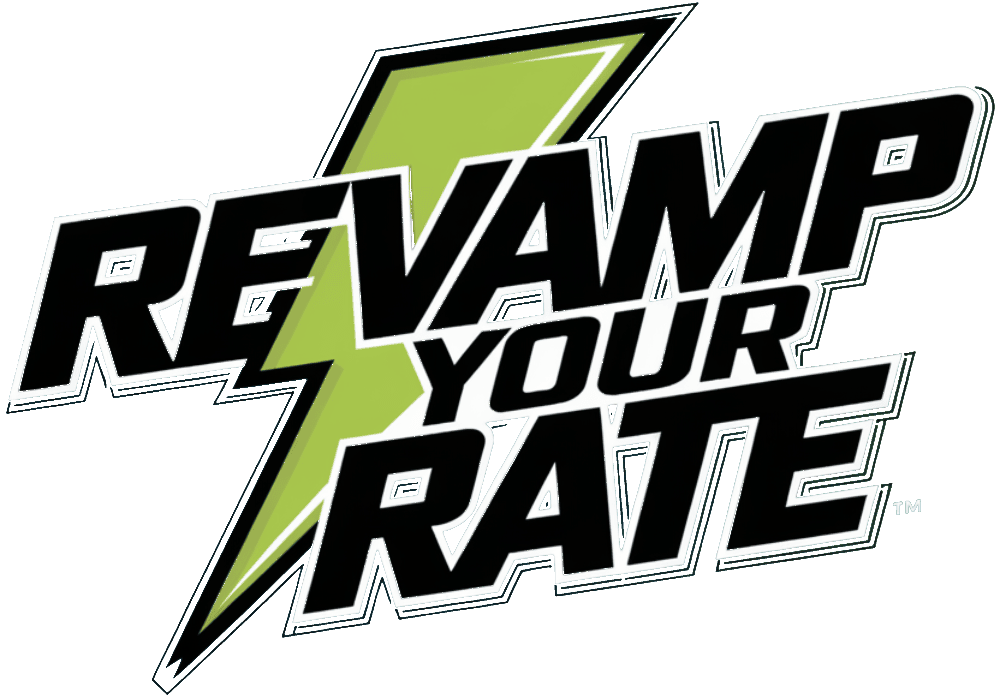Cash-out refinancing is a financial strategy that allows homeowners to leverage their home equity for various needs.
This option enables borrowers to replace their existing mortgage with a new loan higher than the original mortgage, taking the difference as cash.
In this article, we will explore the intricacies of cash-out refinance, including its workings, advantages, risks, and the steps involved in the process.
Understanding this method can help you make informed decisions regarding your mortgage and financial future.
Benefits:
- Available everywhere except HI, NY, & DC.
- Expert guidance to navigate complex financial decisions.
- Fast, efficient process from application to closing.
- Flexible loan options to fit every lifestyle.
- Personalized support every step of the way.
Benefits:
- Lending in MI, OH, TN, FL, CO, MN, & PA
- Quick responses, so you’re never left waiting.
- Loan Options designed to fit your financial goals.
- Simple Application Process with Clear Communication
- Over 7,000 Five Star Reviews
What is Cash-Out Refinance?
A cash-out refinance is a loan option that allows homeowners to convert a portion of their home equity into cash.
This type of loan replaces the existing mortgage with a new mortgage for a higher amount, thus allowing borrowers to “cash out” the difference.
Typically, homeowners may consider this option if they have significant equity in their home, which is the difference between the home’s current market value and the outstanding mortgage balance.
The cash obtained can be used for various purposes, such as home improvement projects, paying off debt, or funding educational expenses.
The mechanics of cash-out refinancing involve applying for a new mortgage that pays off the existing mortgage while providing the homeowner with the excess funds.
This means the borrower has a new loan amount, which may come with different interest rates and terms. As a result, the homeowner’s financial strategy will need to adapt to the new monthly payment structure. Understanding how this process works is crucial for homeowners considering this option, as it can significantly impact their financial landscape.
How Does Cash-Out Refinance Work?
The cash-out refinance process begins with the homeowner applying for a new mortgage loan that exceeds the remaining balance on their existing mortgage.
To determine eligibility, the lender evaluates the property’s value, the homeowner’s credit score, and the home’s equity.
If approved, the new loan pays off the original mortgage and provides the homeowner with cash, which can be used for various financial needs.
This cash-out refinance may be particularly appealing if the homeowner can secure a lower interest rate on the new mortgage than their existing mortgage.
Once the refinancing is complete, the homeowner will have a new mortgage with a different loan amount and possibly different terms. The homeowner should also be aware of any closing costs associated with the refinancing process, which can vary depending on the lender.
The cash received from the cash-out refinance can be a valuable financial resource, but it should be used wisely to avoid future financial pitfalls.
What Are the Key Differences Between Cash-Out Refinance and Traditional Refinancing?
The primary distinction between cash-out refinance and traditional refinancing lies in the purpose and structure of the loans.
- Traditional refinancing involves replacing an existing mortgage with a new one, often with a lower interest rate, without cash access. Homeowners may choose this option to reduce their monthly mortgage payments or change the loan term.
- Cash-out refinancing allows borrowers to access the equity in their homes by increasing the loan amount and obtaining cash for personal use, such as home improvements or debt consolidation.
Another significant difference is the potential impact on the homeowner’s overall debt.
While traditional refinancing does not alter the original loan amount, cash-out refinancing increases it, which may lead to higher monthly payments. This difference can affect the homeowner’s long-term financial strategy, requiring careful consideration of their financial situation and goals.
Cash-out refinance rates may also differ from traditional ones, further influencing a homeowner’s decision-making process.
Who Can Benefit from Cash-Out Refinancing?
Cash-out refinancing can benefit various homeowners, especially those with substantial home equity.
This option can significantly benefit homeowners who want to fund major expenses, such as home improvements or educational costs.
Those seeking to consolidate high-interest debt into a lower-interest mortgage may find cash-out refinancing a smart financial move. This could potentially lower their monthly payments while reducing the total interest paid over the life of the loan.
Cash-out refinancing may also appeal to homeowners comfortable managing a higher mortgage balance in exchange for immediate cash flow. Individuals with good credit scores and stable incomes will likely secure favorable refinance rates, making this option even more attractive.
However, homeowners need to assess their financial circumstances, long-term goals, and potential risks before committing to a cash-out refinance, ensuring that it aligns with their overall financial strategy.
What Are the Advantages of Cash-Out Refinance?
Cash-out refinancing provides several advantages that can enhance a homeowner’s financial flexibility.
- Leverage home equity to access significant cash. This cash can be used for various purposes, including home improvements, funding education, or paying off high-interest debt, leading to improved financial health.
- Secure a lower interest rate on the new mortgage and enjoy lower monthly payments than the original mortgage.
- Simplify your financial structure. By consolidating debts into a single mortgage payment, homeowners can streamline their finances, making it easier to manage monthly obligations.
- Interest paid on mortgage loans may be tax-deductible, depending on the circumstances. This advantage can result in substantial savings, allowing homeowners to allocate their finances more effectively.
What Are the Risks of Cash-Out Refinance?
While cash-out refinancing offers several advantages, it also comes with inherent risks that homeowners should consider.
Increased debt
By refinancing for a higher loan amount, homeowners effectively increase their mortgage debt, which may lead to higher monthly payments. This increase can strain a homeowner’s budget and financial stability, especially if unexpected expenses arise or the homeowner’s income fluctuates.
Impact on home equity
As the loan amount increases, the homeowner’s equity decreases, which can be a concern if the property value declines. When homeowners refinance for more than their existing mortgage balance, the cash they receive effectively reduces their ownership stake in the home.
This reduction in home equity can be concerning, especially if property values fluctuate or decline. Homeowners should carefully consider how much equity they are willing to sacrifice for immediate cash access.
A decrease in home value can put homeowners in a difficult position, particularly if they need to sell or refinance again.
Closing costs
One significant concern is the likelihood of high closing costs associated with refinancing. These costs can erode the benefits of accessing cash, particularly if the homeowner does not plan to stay in the home long enough to recoup these expenses.
It’s crucial for homeowners to accurately estimate the closing costs and weigh them against the potential benefits of the refinance.
What Happens If You Cannot Repay the New Loan?
Failing to repay a cash-out refinance loan can have severe consequences for homeowners.
Just like any mortgage, a cash-out refinance is secured by the home, meaning that if the borrower cannot make the required monthly payments, the lender has the right to initiate foreclosure proceedings.
This process can lead to the loss of the home, which is often the most significant asset a homeowner possesses. Homeowners must ensure they can manage the new mortgage payments before proceeding with cash-out refinancing.
Missing payments on a cash-out refinance can also severely impact a homeowner’s credit score. A lower credit score could hinder future borrowing opportunities, making securing favorable loans or interest rates challenging.
Before committing to this financial strategy, homeowners should carefully evaluate their financial situation, including their ability to make the higher monthly payments associated with a cash-out refinance. This diligence can help prevent financial hardships and protect their long-term health.
How to Determine If Cash-Out Refinance Is Right for You?
Determining whether cash-out refinancing suits a homeowner involves assessing several key factors.
- Their current financial situation, including their credit score, existing debt levels, and monthly income. If they have a strong credit score and manageable debt, they may qualify for more favorable refinance rates, making cash-out refinancing a viable option.
- The purpose of the cash-out funds, if the funds will be used for high-return investments or debt consolidation, the benefits may outweigh the drawbacks.
- The long-term implications of increasing the loan amount. Homeowners should consider how the new monthly payments will affect their overall budget and financial goals.
- The current market conditions, including interest rates and property values, as these factors can significantly impact the refinancing decision.
- Their long-term financial goals and how cash-out refinancing fits into their overall plan. For instance, if they plan to sell the home within a few years, the costs of refinancing may outweigh the benefits.
By conducting a thorough evaluation of these elements, homeowners can make informed decisions about whether cash-out refinancing aligns with their financial objectives.
How Can You Calculate Your Home Equity?
Calculating home equity is a straightforward process that involves determining the difference between the current market value of the home and the outstanding mortgage balance.
Homeowners can start by obtaining an estimate of their home’s market value, which can be done through online real estate platforms or by hiring a professional appraiser.
Once the market value is established, the next step is to subtract the remaining mortgage balance from this figure to arrive at the home equity amount.
For example, if a home is valued at $300,000 and the outstanding mortgage balance is $200,000, the homeowner has $100,000 in equity. This equity can serve as a valuable asset when considering cash-out refinancing.
Additionally, homeowners should keep in mind that equity can fluctuate based on market conditions and property improvements. Regularly assessing home equity can provide homeowners with insights into their financial position and help them make informed decisions about leveraging their equity through refinancing.
What Financial Situations Make Cash-Out Refinancing a Smart Choice?
Certain financial situations may make cash-out refinancing an advantageous decision for homeowners.
- If a homeowner has accumulated significant equity and faces high-interest debts, consolidating those debts through a cash-out refinance can lead to lower monthly payments and reduced interest costs.
- Homeowners planning to undertake substantial home improvements may benefit from cashing out their equity, as these enhancements can potentially increase the property’s value.
- Homeowners experiencing unexpected expenses, such as medical bills or educational costs, may find cash-out refinancing to be a useful financial tool. This option can provide immediate access to funds without the need for high-interest personal loans.
What Are the Steps to Cash-Out Refinance?
The process of cash-out refinancing involves several key steps that homeowners should follow to ensure a smooth experience.
- Homeowners need to assess their current financial situation, including their credit score and existing mortgage balance, to determine eligibility for refinancing.
- Research different lenders and mortgage products to find the best refinance rates and terms that align with their financial goals. This comparison can lead to significant savings over the life of the loan.
- Complete the application process, which typically involves providing documentation about income, assets, and the property.
- The lender will conduct a home appraisal to establish the property’s current market value.
- If approved, the lender will provide a new mortgage loan that pays off the existing mortgage and provides the homeowner with cash.
Understanding these steps can help homeowners navigate the cash-out refinance process more effectively.
How Do You Start the Cash-Out Refinancing Process?
To initiate the cash-out refinancing process, homeowners should begin by gathering relevant financial documents, including tax returns, pay stubs, and bank statements.
These documents will be necessary for the lender to assess the homeowner’s financial situation and determine eligibility for refinancing.
Homeowners can also obtain their credit report to identify any issues that may need addressing before applying for the new loan. A strong credit score will typically lead to more favorable refinance rates and terms.
Once the homeowner has prepared the necessary documentation, the next step is to research potential lenders and their offerings. It’s advisable to compare multiple lenders to find the best rates, terms, and customer service.
Homeowners can also consider seeking recommendations from friends or family who have recently refinanced. After selecting a lender, they can proceed with the application process, ensuring they provide accurate and complete information to facilitate a smoother experience.
Conclusion: Is Cash-Out Refinance Right for You?
Cash-out refinance can be a useful tool for accessing your home equity, but it’s crucial to weigh the pros and cons carefully.
Consider your financial goals, the potential impact on your monthly payments, and whether alternatives like a home equity line of credit might be more suitable. Evaluate the terms of the new loan, the amount of cash you’ll receive, and how it affects your existing mortgage.
Ultimately, thorough research and consultation with a mortgage lender will empower you to make an informed decision that aligns with your financial needs and goals.
Our advise is based on experience in the mortgage industry and we are dedicated to helping you achieve your goal of owning a home. We may receive compensation from partner banks when you view mortgage rates listed on our website.




